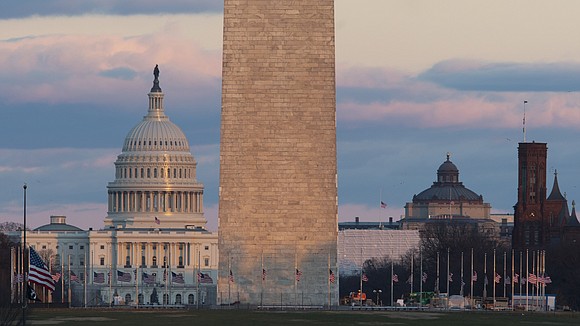January 6 investigators recommended a contempt charge against Steve Bannon. Here's what that means.
CNN/Stylemagazine.com Newswire | 10/20/2021, 11:36 a.m.

Originally Published: 14 OCT 21 05:09 ET
Updated: 20 OCT 21 02:07 ET
By Paul LeBlanc, CNN
(CNN) -- Members of the House select committee investigating the January 6 attack on the US Capitol have shown they're willing to pursue criminal contempt referrals against witnesses who refuse to comply with the panel's subpoenas.
But what does that mean?
Criminal contempt is one of the three options the congressional panel can pursue to enforce its subpoenas, along with civil and inherent contempt.
In the first test of the panel's willingness to pursue such a referral, the committee voted unanimously Tuesday evening to refer Trump ally Steve Bannon to the Justice Department for criminal contempt charges after he refused to comply with a subpoena deadline.
"It's a shame that Mr. Bannon has put us in this position. But we won't take 'no' for an answer," Committee Chairman Bennie Thompson, a Mississippi Democrat, said ahead of the vote. "We believe Mr. Bannon has information relevant to our probe, and we'll use the tools at our disposal to get that information."
Here's what criminal contempt is and how it compares with civil and inherent contempt:
Criminal contempt
Now that the criminal contempt referral of Bannon has cleared the committee, it heads to the House for a vote. If that vote succeeds, House Speaker Nancy Pelosi certifies the report to the United States attorney for the District of Columbia.
Under law, this certification then requires the United States attorney to "bring the matter before the grand jury for its action," but the Justice Department will also makes its own determinations for prosecuting.
Any individual who is found liable for contempt of Congress is then guilty of a crime that may result in a fine and between one and 12 months imprisonment. But this process is rarely invoked and rarely leads to jail time.
As severe as a criminal contempt referral sounds, the House's choice to use the Justice Department may be more of a warning shot than a solution. Holding a person in criminal contempt through a prosecution could take years, and historic criminal contempt cases have been derailed by appeals and acquittals.
Civil contempt
Unlike with criminal contempt, civil contempt would see Congress ask the judicial branch to enforce a congressional subpoena.
In other words, Congress would seek a federal court's civil judgment saying the person is legally obligated to comply with the subpoena.
During Donald Trump's presidency, the House tried this approach many times, but the court process moved so slowly it took months or even years for standoffs to resolve. Some, like a House subpoena for Trump's IRS returns, still linger before a trial judge.
Inherent contempt
The third option the panel could use to enforce its subpoenas would be inherent contempt, which involves telling the House or Senate sergeant-at-arms to detain or imprison the person in contempt until he or she honors congressional demands.
This is an extremely rare process and hasn't happened in modern times.
This headline and story have been updated with additional developments.



